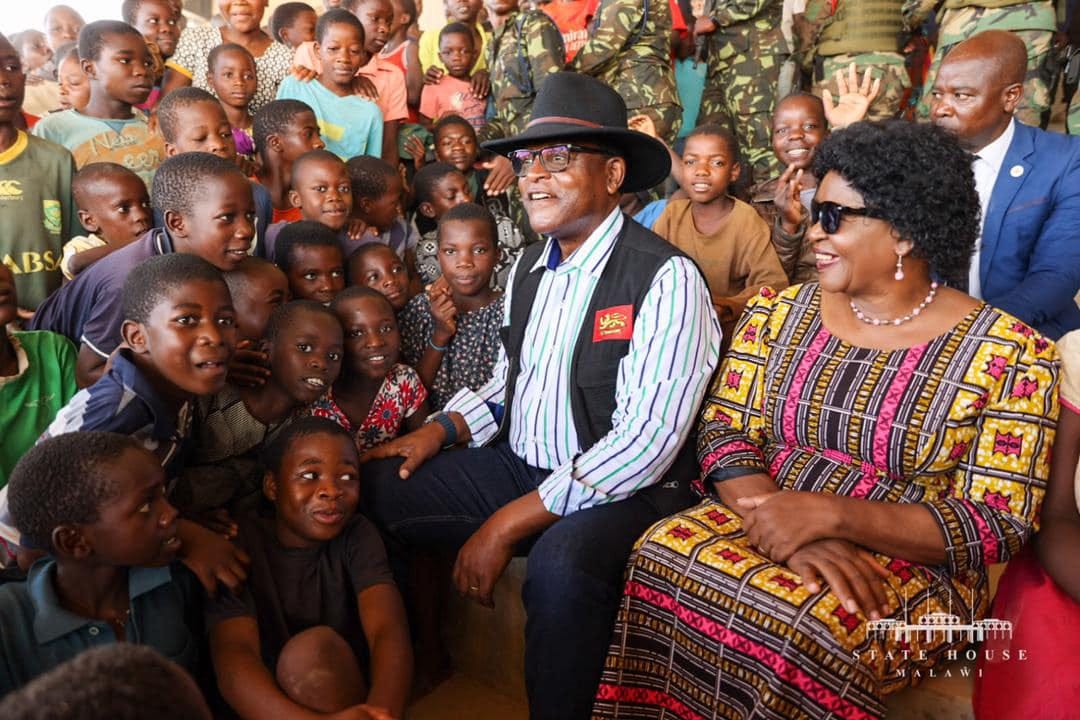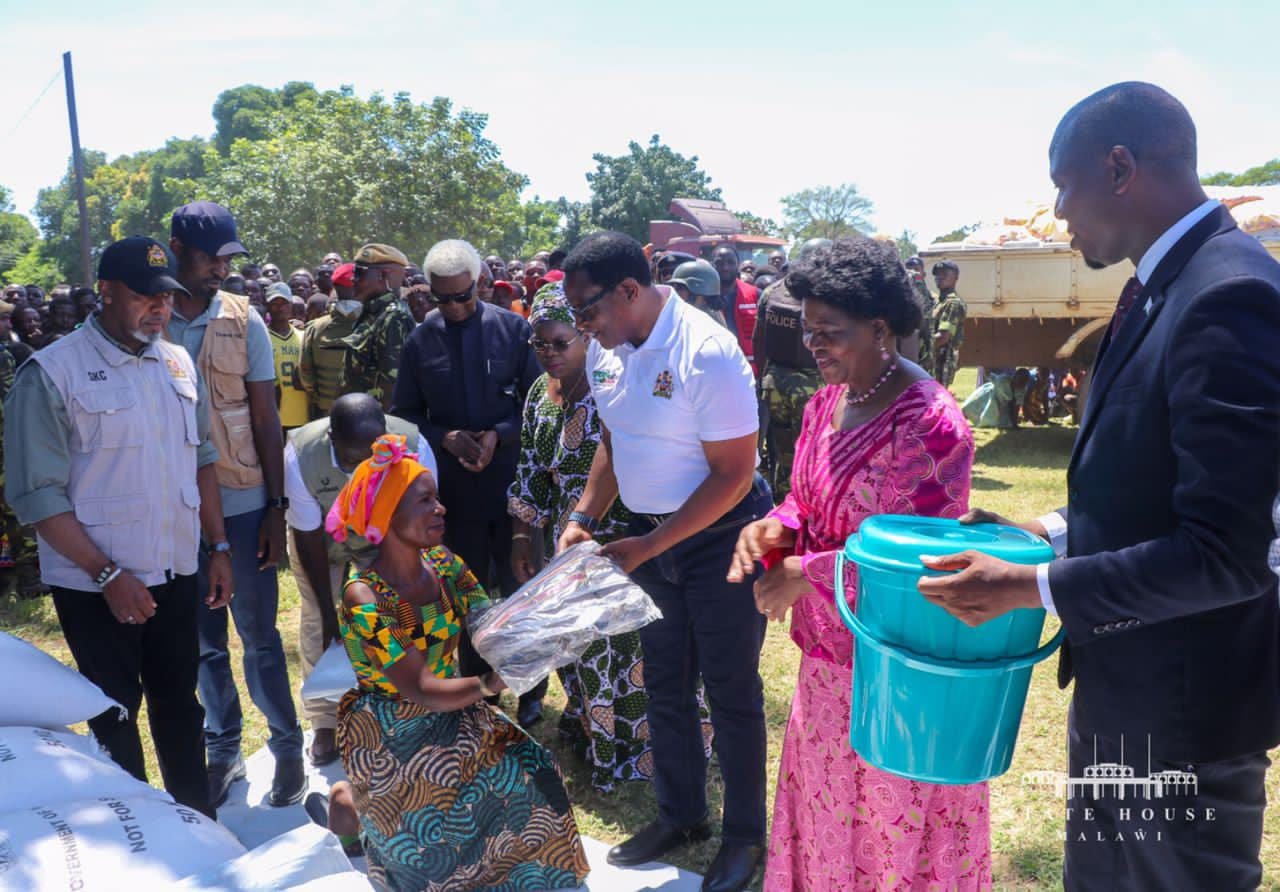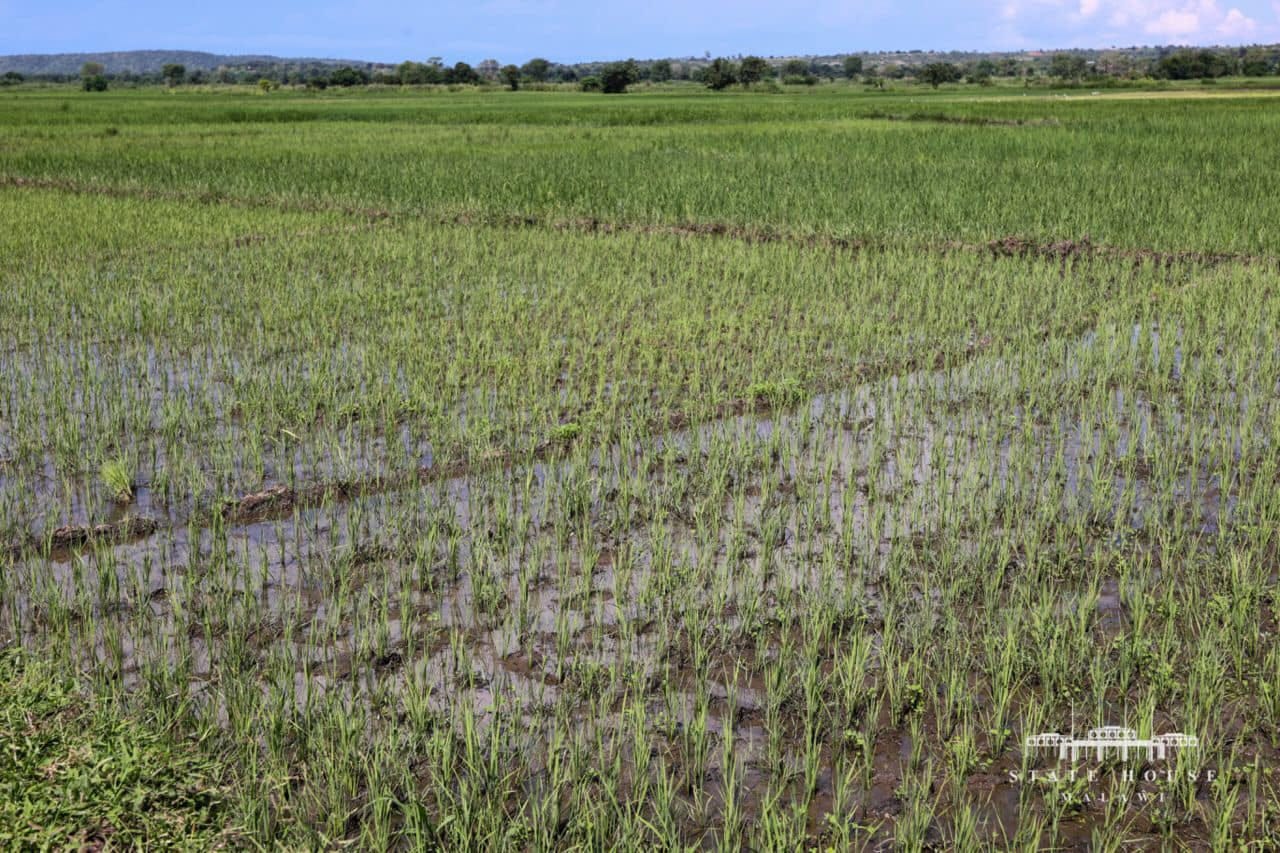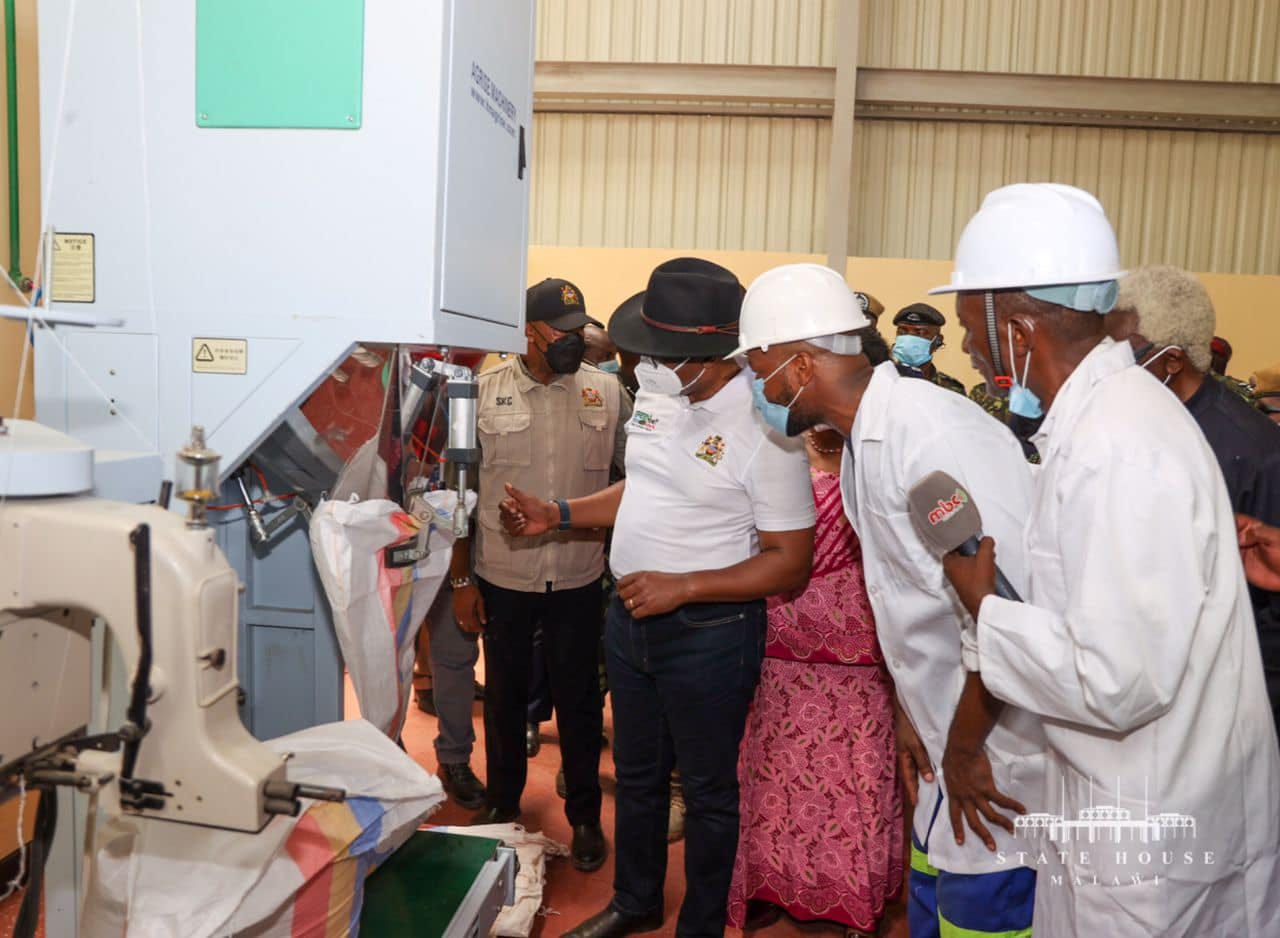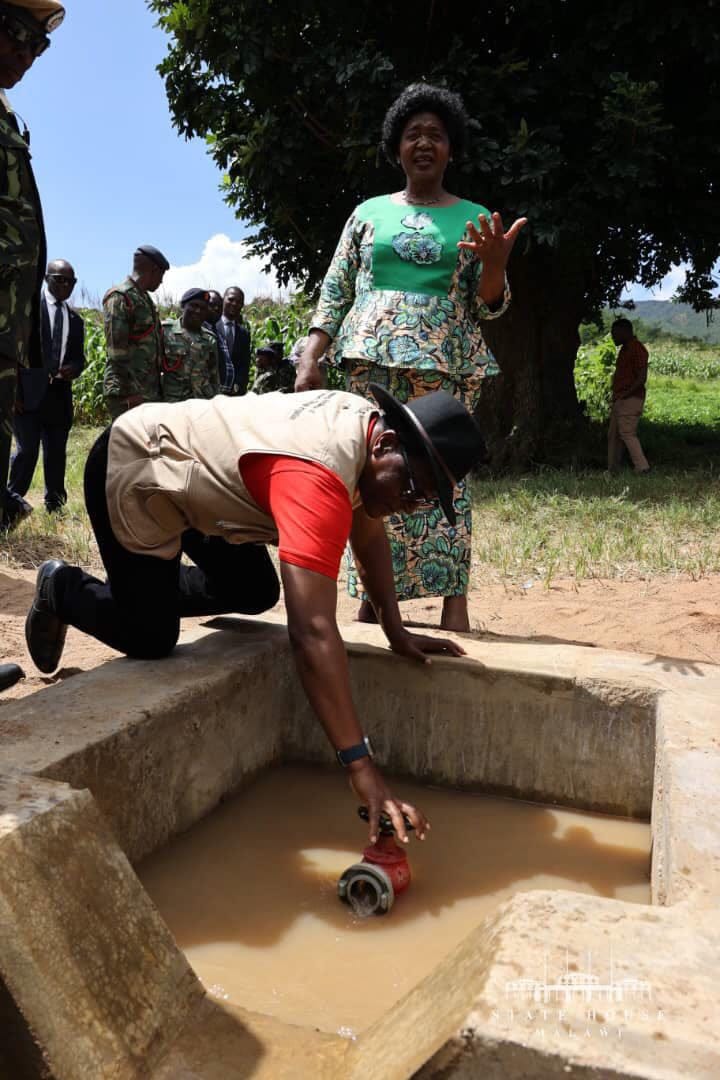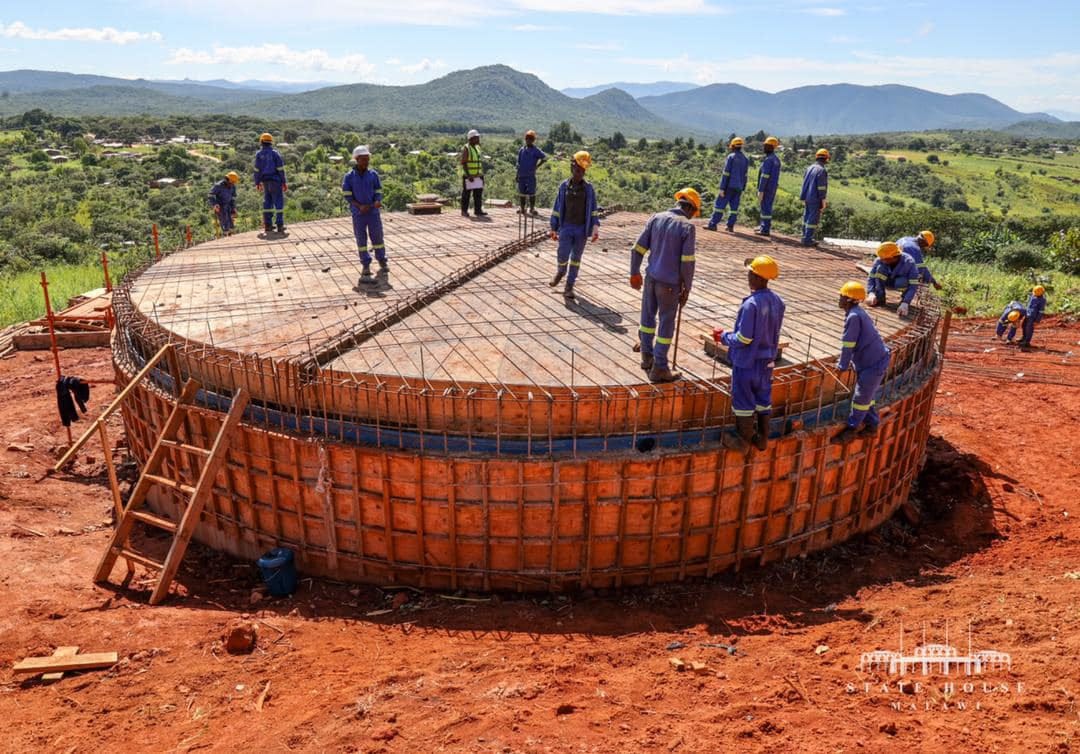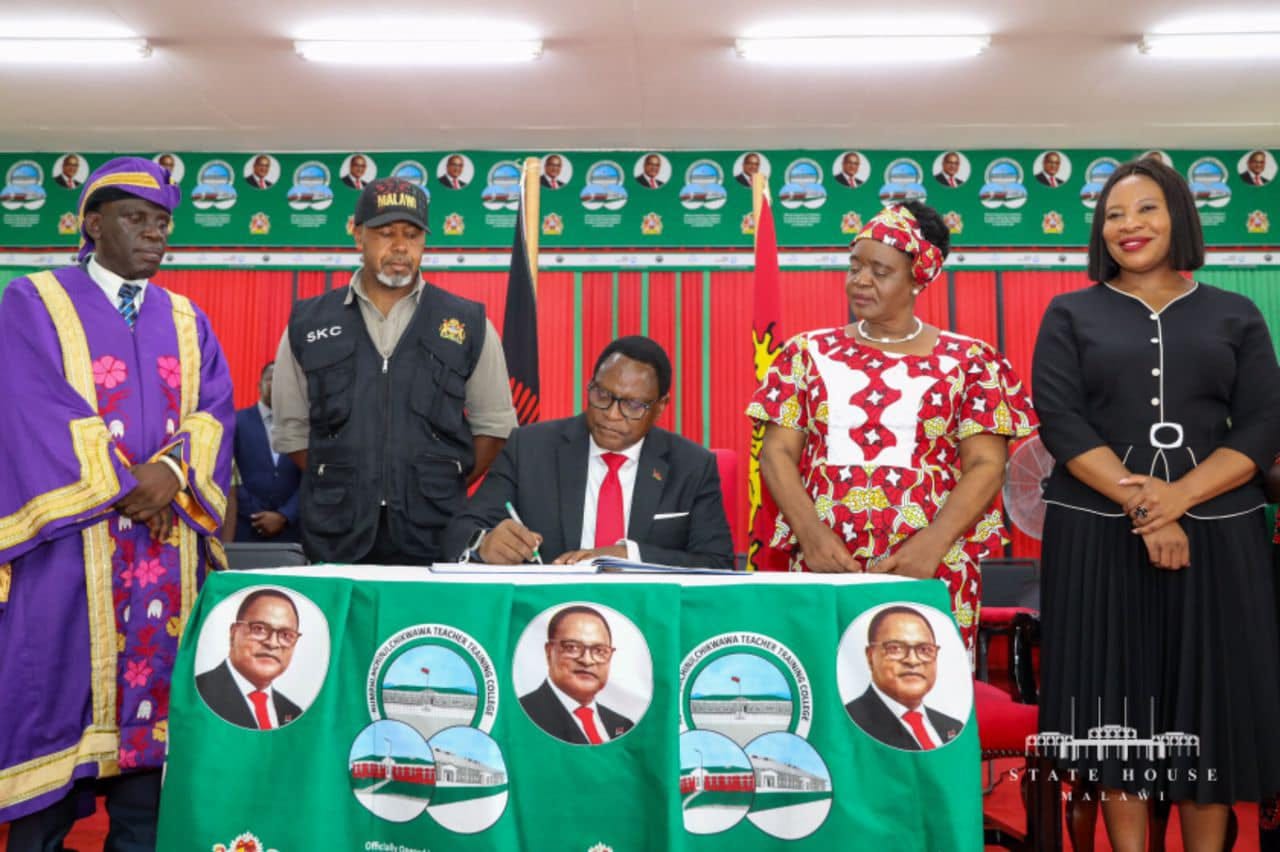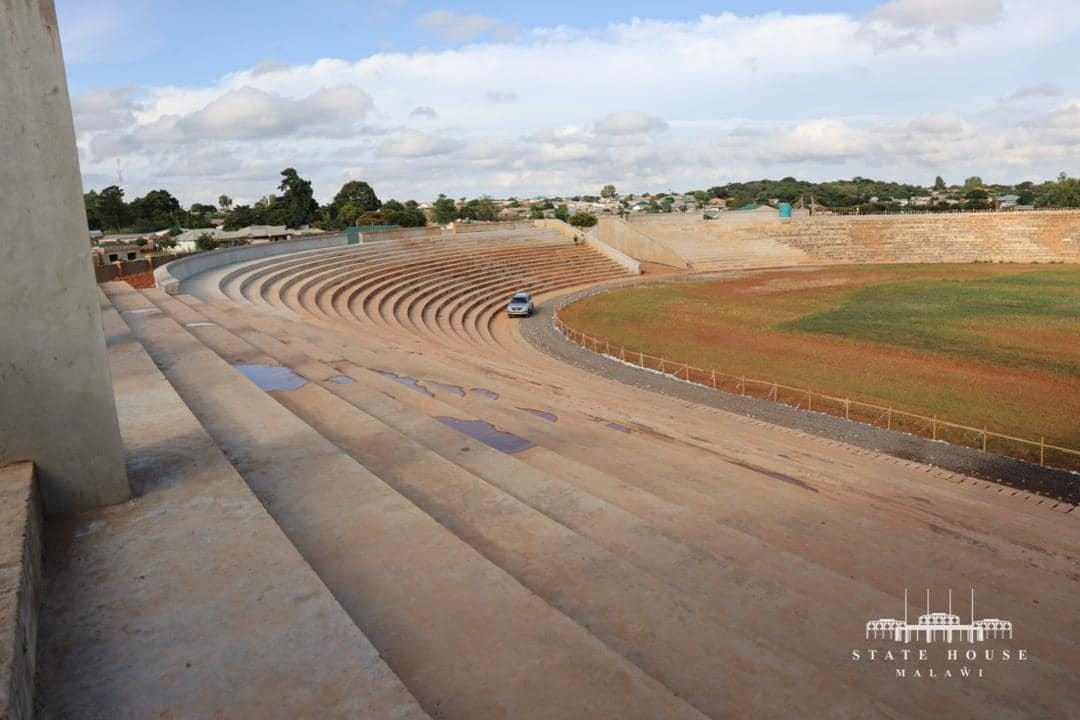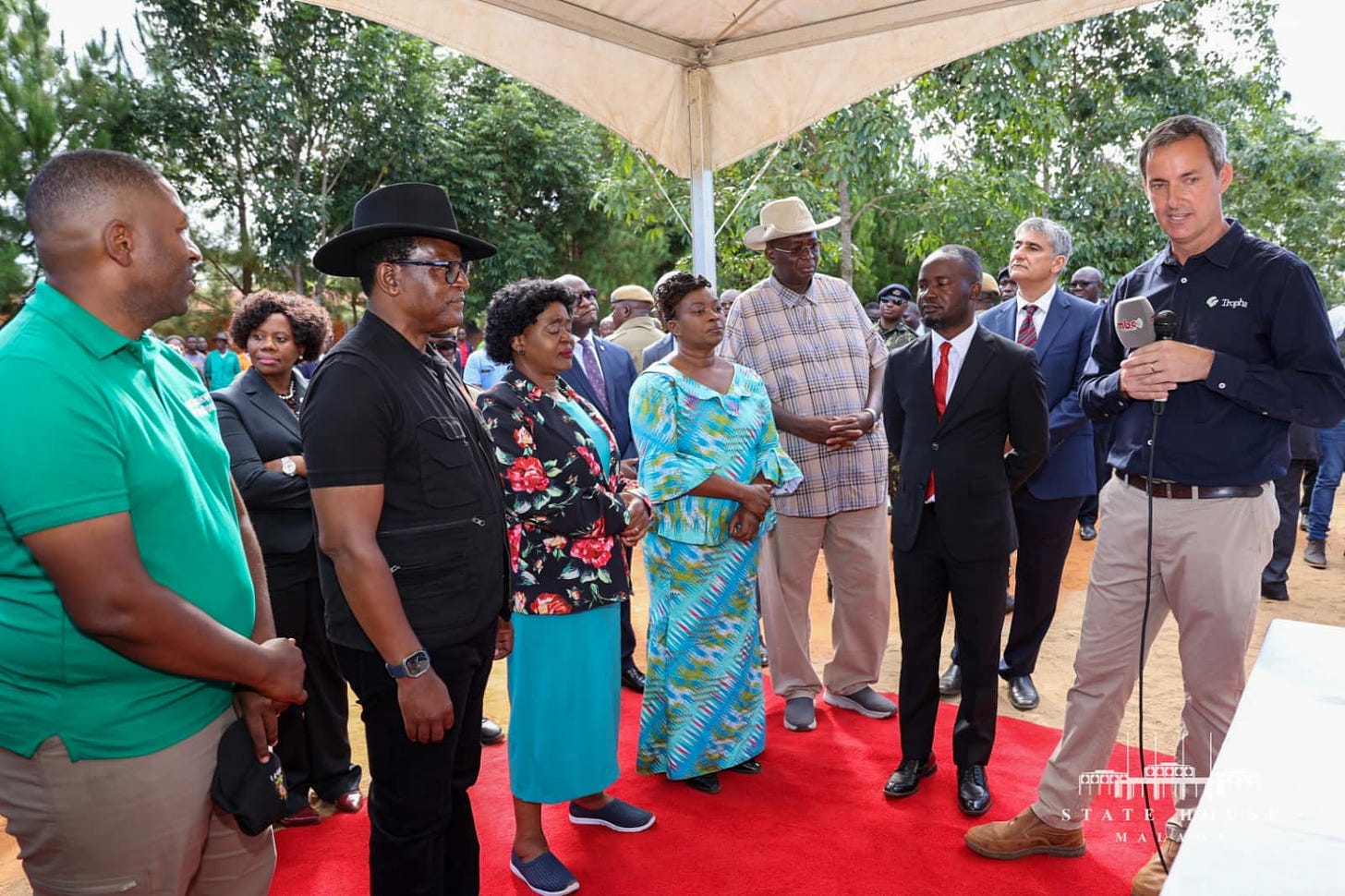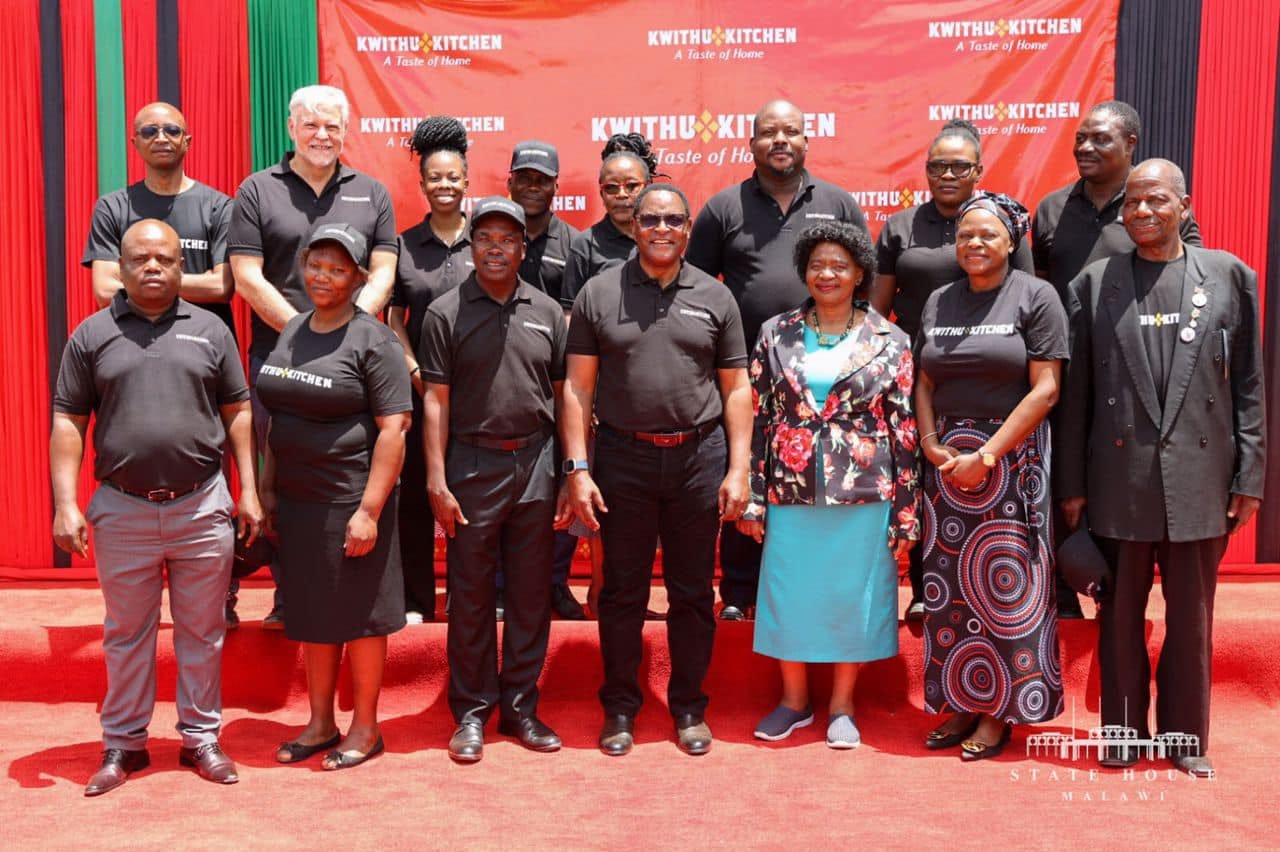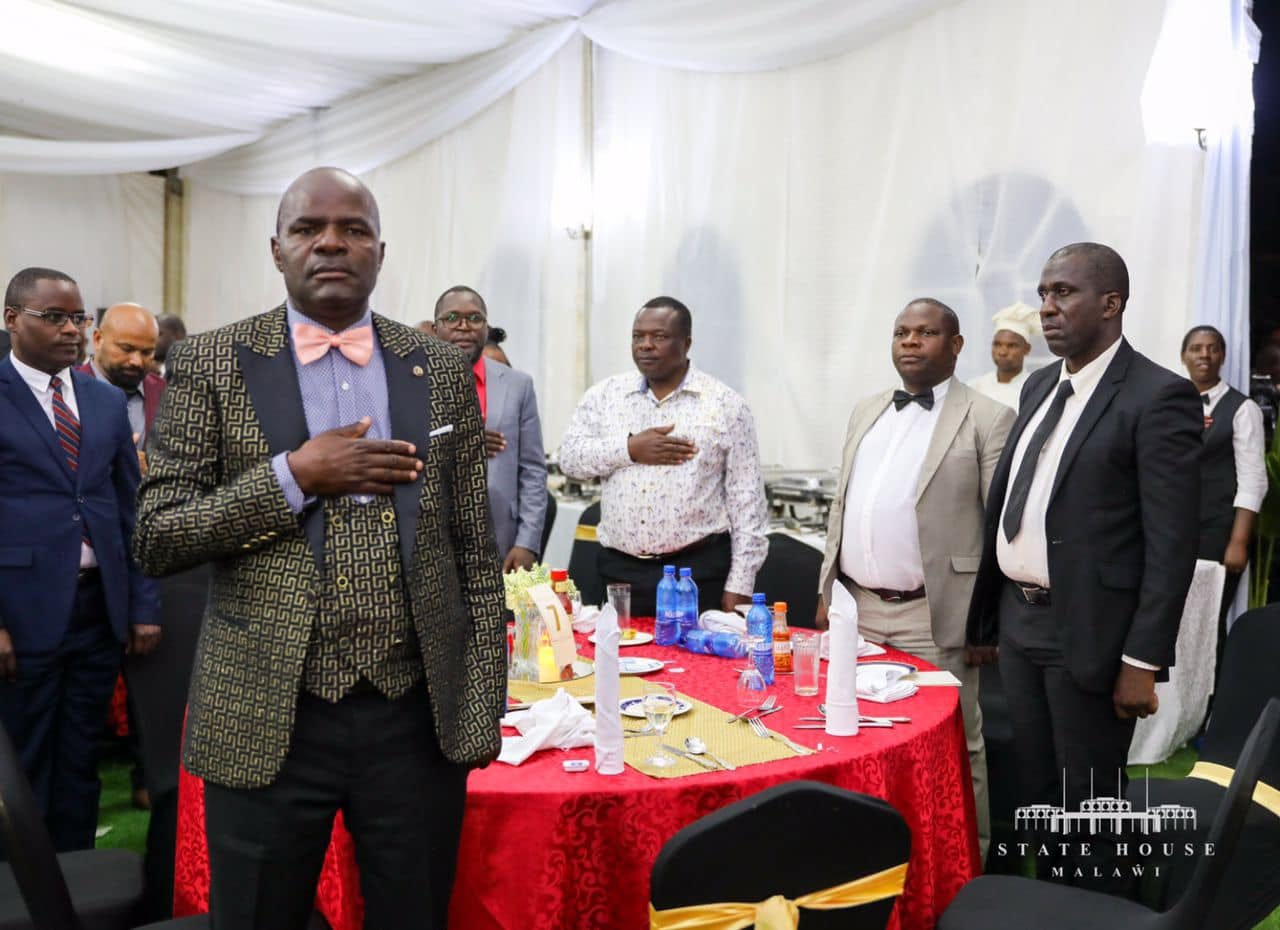President Chakwera's Northern Malawi Tour - AfricaBrief Reflects 🌟
Capping his tour, the president convened the Presidential Business Captains Dinner at Mzuzu State Lodge on Friday, where he honored leaders of the private sector in the Northern Region
MZUZU, Malawi— President Lazarus Chakwera embarked on a tour of several districts in northern Malawi last week, highlighting his administration's concerted efforts to spur economic development, improve infrastructure and bolster key sectors like agriculture and tourism, which form the cornerstone of his "ATM strategy" for the nation's growth.
AfricaBrief Editor-in-Chief, Winston Mwale, looks back at the president's weeklong visit:
In Karonga, Chakwera visited communities that were displaced when the North Rukuru River burst its banks on February 24, leaving over 4,000 people inconvenienced in terms of shelter, farming activities, schools, and general welfare.
"Today, I visited one of the shelter camps where relocated communities have found temporary solace," Chakwera said.
"Here, I learnt first-hand the magnitude of the problem and what we need to continue doing as our immediate response and resilience-building plan."
Acknowledging the dire situation, the president assured that his government is providing relief items to ease the predicament of those affected. "In remedy, we are supporting the affected with relief items to ease their predicament," he stated.
Looking ahead, Chakwera underscored the need for long-term disaster preparedness measures.
"Long term, we will enhance disaster preparedness efforts through construction of more dykes to prevent future floods," he said.
During his visit to Karonga, the president also inspected the Karonga Town Water Supply Projects, an initiative launched by his government to bring potable water to over 185,000 residents in the district and surrounding areas.
"This augurs perfectly with my administration's agenda to rally partners and communities in promoting the adoption of safe water sanitation practices at the individual and household level," Chakwera remarked.
Highlighting the strides made in the agricultural sector, Chakwera praised Karonga as "an excellent model of how irrigation and agro-processing interdependently add value to our job and wealth creation targets in line with the Irrigation Master Plan and Investment Framework."
He toured the district's first rice milling factory, situated at the 1,000-hectare Nthola-Illola Irrigation Scheme.
The plant, boasting a milling capacity of 50 tonnes per day, is expected to employ 100 workers and benefit over 2,500 anchor and out-grower farmers.
Additionally, Chakwera marveled at the newly-upgraded 700-hectare Wovwe Irrigation Scheme, one of several irrigation facilities that have undergone intensive rehabilitation nationwide after decades of neglect.
This scheme alone is benefitting over 1,700 farmers.
"All these efforts are a deliberate intervention by my administration to make sure that farming becomes a commercially-viable vocation that will in turn expedite our job and wealth creation agenda as drawn in the Malawi Vision 2063 agenda," the president asserted.
In Chitipa, Chakwera's tour showcased the district's progress in implementing the first component of the ATM strategy – Agriculture – through the upscaling of irrigation and making it a pivot of agricultural commercialization.
He inspected the Marko Ifumbo Irrigation Scheme, a landmark irrigation initiative specializing in the production of beans, maize, and Irish potatoes, which is benefiting close to 1,000 households following its upgrade.
Beyond agricultural advancements, Chakwera noted that Chitipa is undergoing a massive transformation in other key sectors, citing the ongoing 32-kilometer Chitipa-Ilomba Road project.
"Upon completion, this road will create a gateway of trade opportunities for Malawi with the Northern Corridor via Tanzania," he stated.
The president also highlighted the construction of the Chitipa Stadium and 110 staff houses at Meru Garrison, assuring that his administration will continue injecting funds to fast-track the completion of these and other projects in the district.
"These and many more projects I didn't have time to visit are testimony of our relentless efforts to make Chitipa an economic hub in the Northern Region. And this, we will do," Chakwera declared.
Underscoring the importance of tourism as a crucial component of the ATM strategy, alongside agriculture and mining, Chakwera emphasized his government's efforts to rally investments in this sector.
"In pursuit of total transformation of Malawi, your government continues to rally efforts around strategic investments in Tourism, a key sector which forms the ATM strategy together with Agriculture and Mining," he said.
During his visit to Rumphi District, the president inspected the Thazima Gravity Piped Water Supply Scheme, a project aimed at providing potable water and creating sustainable communities on the borders of two significant tourist attraction sites – Nyika National Park and Vwaza Marsh Wildlife Reserve.
Scheduled for completion by June this year, the project is expected to eliminate the wildlife dangers that communities face when searching for clean drinking water.
It will benefit over 18,000 people from this year and 33,000 by 2034, in accordance with Malawi Vision 2063's Enabler #7, which espouses environmental sustainability through better practices in the management of natural resources.
Chakwera expressed gratitude to the project's partners, including the Federal Government of Germany through KfW, Peace Parks Foundation, and the Transfrontier Conservation Area (TFCA) Management Unit, whose expertise and financing will ensure safer and progressive communities around the two conservation areas.
Recognizing the pivotal role of education in achieving sustainable development, the president highlighted his administration's efforts to train an adequate number of teachers at all levels of formal education to attain acceptable standards of teacher-pupil ratios.
"The thrust of our economy rests in the hands of all Malawians, for they are the ones who envision, innovate and implement strategies in accordance with national aspirations," Chakwera said.
"To achieve real development, my administration is channeling resources to train enough teachers at all structures of formal education so that we attain acceptable standards of teacher-pupil ratio."
He expressed encouragement at the official launch of three new teacher training colleges in Chikwawa, Mchinji, and Rumphi, which he noted "will greatly increase enrollment into teaching practice for our youth."
"A well-drilled workforce that will participate in the full implementation of the Malawi Vision 2063 depends on the teachers we are training now," Chakwera added.
In Mzimba, the largest district in Malawi, the president inspected ongoing infrastructure projects aimed at improving social services and expanding local employment opportunities.
Among these projects are the new 15,000-seater M'mbelwa Stadium and a district council office complex currently under construction.
According to Chakwera, the stadium "will promote a spirit of community and social integration for people of Mzimba and surrounding districts," while the new council complex "will improve the delivery of social services by various government ministries, departments, agencies in constant liaison with various non-governmental organizations."
"This is what real decentralization looks like," the president remarked, assuring local government authorities of his committed support to complete these and many other projects within the district.
Chakwera's tour also took him to the Tropha Macadamia Farm at Ekwendeni in Mzimba, where he expressed confidence in the private sector's involvement in mega farms as a means to achieve sustainable food security, create jobs, and grow the export base.
"When my administration started implementing mega farms in 2020, our greatest desire was to get onboard the private sector through stand-alone investments or public-private partnerships," he said.
"My visit to Tropha Macadamia Farm at Ekwendeni in Mzimba today has given me confidence that private sector involvement in mega farms is what we need to achieve sustainable food security, create jobs and grow the export base."
Highlighting the farm's significance, Chakwera noted that it is the first fully-irrigated macadamia farm in the country and has created investment synergies with other firms, currently employing over 1,000 people.
"I have learned that macadamia is a high-value crop that, if well harnessed within our farming culture, has the potential to become a high export earner for our economy," the president said.
"We intend to explore Malawi's full-scale potential in the crop because we are already positioned advantageously for being the seventh-largest macadamia producer in the world and third in Africa."
After visiting the macadamia farm, Chakwera proceeded to appreciate Luwinga-based Kwithu Kitchen, which specializes in manufacturing tomato, pepper, and honey products.
"My administration will continue supporting both large and small-scale manufacturers for them to make a lasting impact on our economy through jobs and exports," he affirmed.
Capping his tour, the president convened the Presidential Business Captains Dinner at Mzuzu State Lodge on Friday, where he honored leaders of the private sector in the Northern Region, whose daily decisions enhance strategic partnerships with the government in a collective urge to build a better and more prosperous Malawi.
During the event, Chakwera reminded the business leaders that both the government and the private sector operate on the same wavelength in terms of institutional dynamics, opportunities, setbacks, and leadership models through which solutions are found.
"It is, therefore, incumbent upon leaders from both ends to work hand in hand in fixing this great country for good," he emphasized.
"As agreed in various meetings, we will continue building strong and smart partnerships to effect tangible positive change in the lives of Malawians."
Chakwera's comprehensive tour allowed him to review major development initiatives underway across northern Malawi, reinforcing his administration's commitment to driving economic growth, improving infrastructure, and enhancing key sectors through strategic partnerships and a holistic approach to nation-building.




